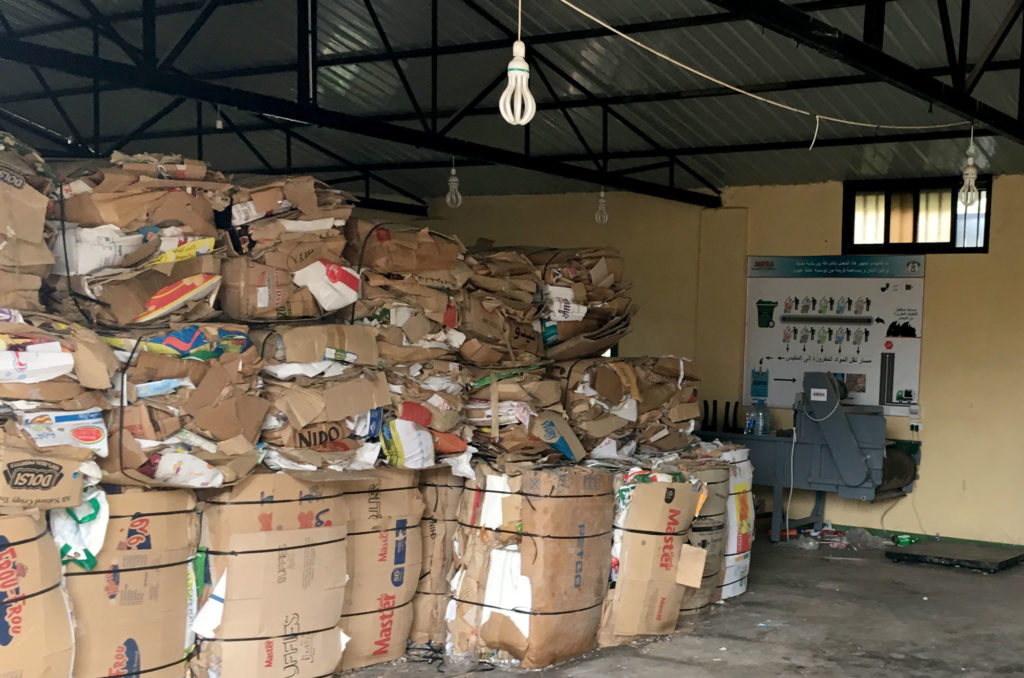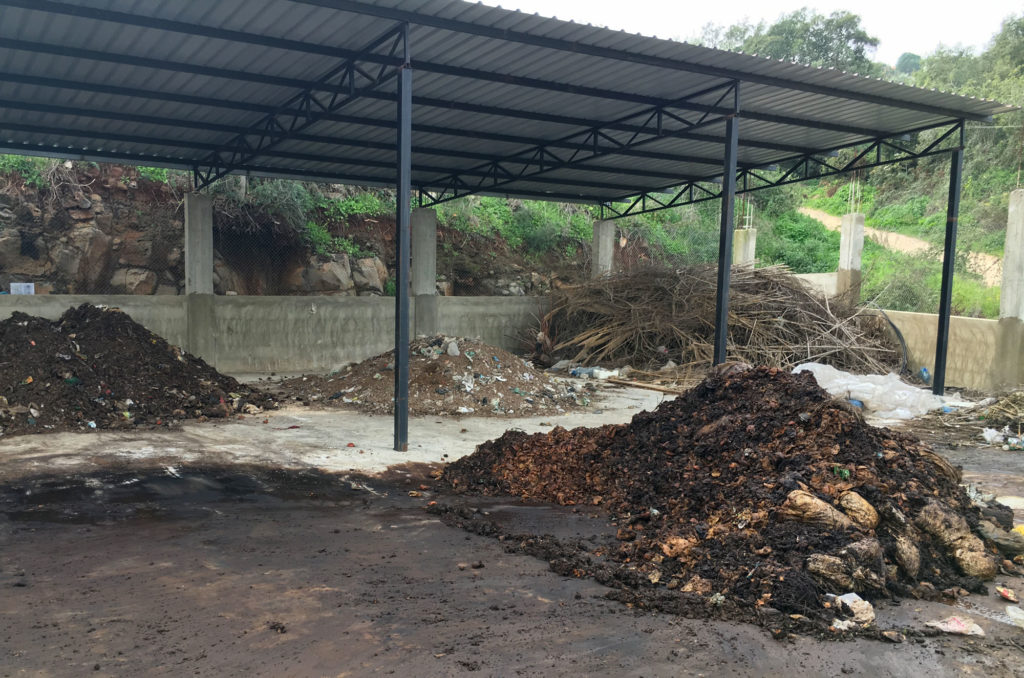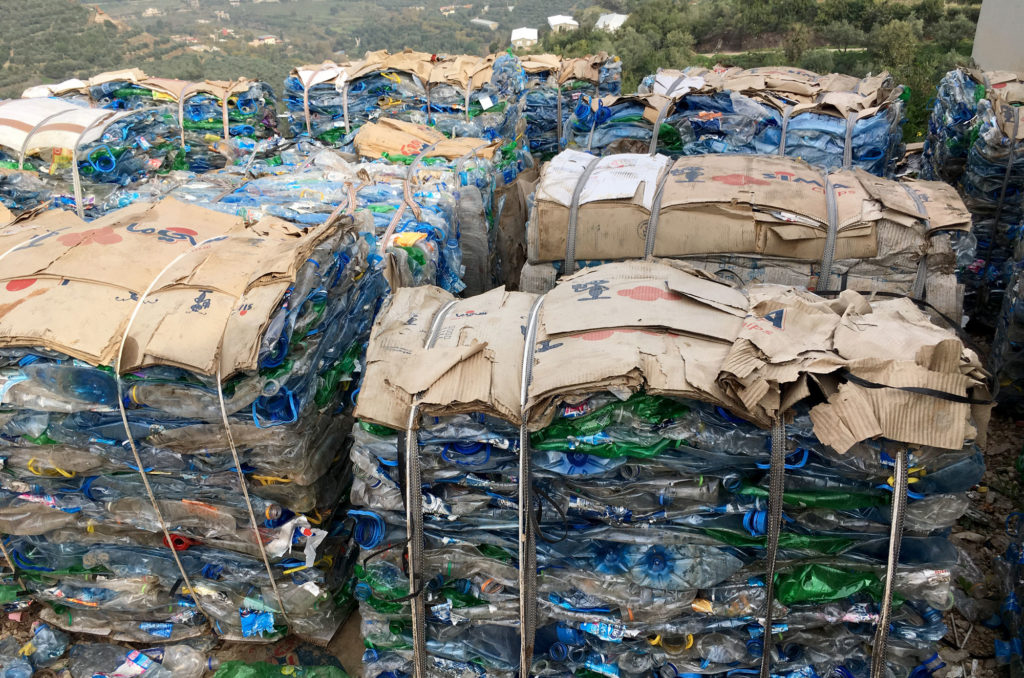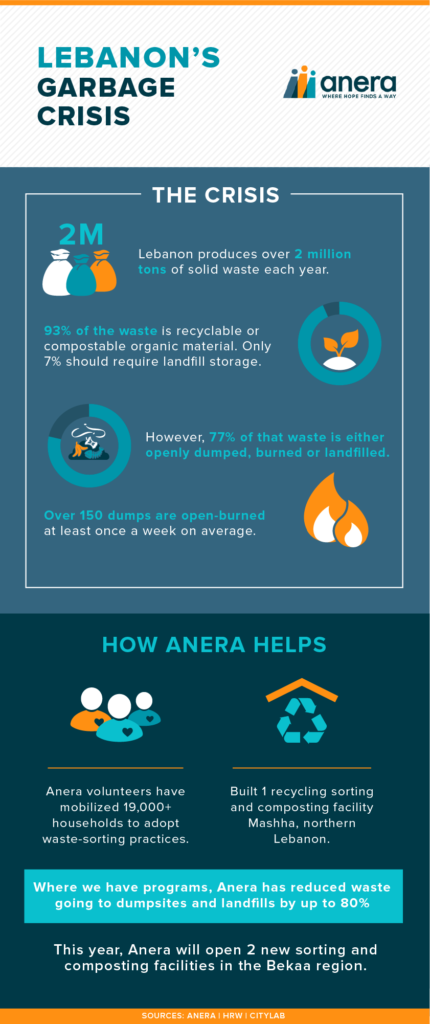Happy Earth Day 2021!
Posted in: Days of Observance
Every year, people around the world mark Earth Day on April 22nd. To celebrate Earth Day this year, we are sharing updates from our staff in Lebanon, Gaza, and the West Bank.
From Lebanon this Earth Day
I’m sure you know that things are as tough as can be here in Lebanon, with the confluence of a terrible economic crisis, COVID-19, and rebuilding Beirut after an explosion last summer laid waste to much of the city.
There also has been a trash problem growing in this country for years. Did you know that Lebanon produces over two million tons of solid waste each year? Seventy-seven percent of it is openly dumped, landfilled or burned despite 93 percent of the waste being recyclable or compostable. Hundreds of dumps are open-burned each week across the country.
Given this sad state of affairs, on this Earth Day, I want to take you on a tour of hope, to the beautiful Baalbek district of Lebanon. To get to where we’re going, we’ll drive along country roads passing through farmlands, dotted here and there with the white tents where thousands of Syrian refugees are forced to dwell.
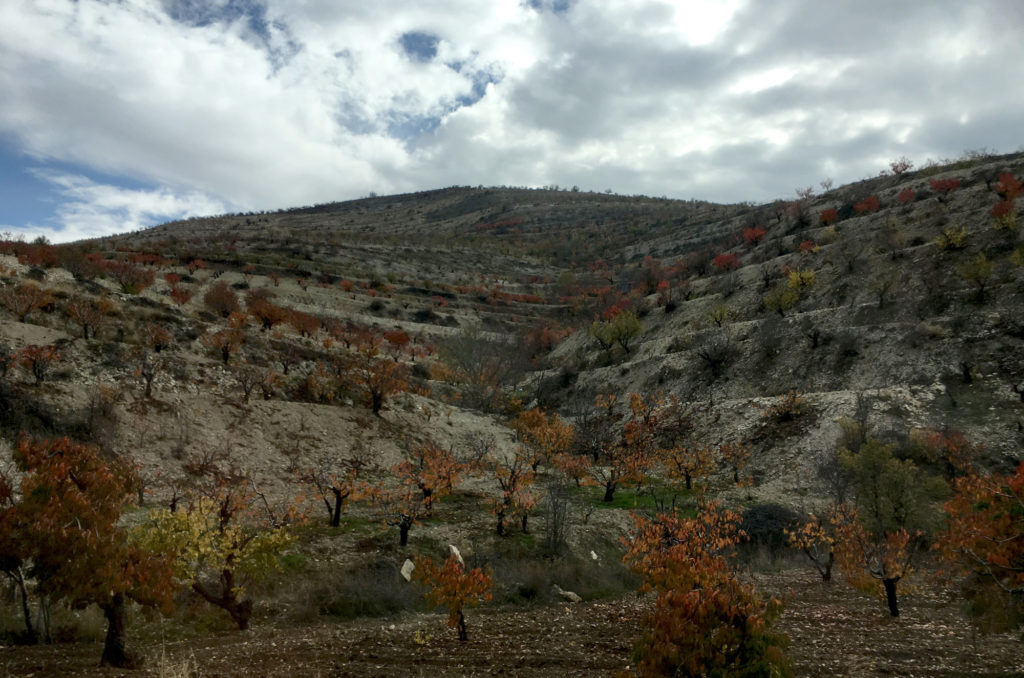

We’ll eventually drive through gorgeous groves of fruit trees in the hilly outskirts of Temnine El Foka. And then we’ll come to a waste sorting and composting facility that Anera built in 2020. I’m so proud of this and the other three similar facilities Anera built in Bekaa and North Lebanon. They have created the capacity for scores of local communities and refugee camps to do the right thing with their recyclable waste.
But what really excites me about this work is the amazing and growing involvement of local partner organizations, youth volunteers, women leaders and other community leaders like municipal members, healthcare workers and scouts groups. They are making it happen by knocking on their neighbors’ doors, spreading the word about the importance and benefits of recycling, handing out bins and fliers, and holding community awareness events. These efforts have reduced the amount of waste going to landfills by 246 metric tons.
This year, in 2021, we are working with nine municipalities in Bekaa: Baalbek, Majdal Anjar, Temnin El Foka, Temnine El Tahta, Mansoura, Qsarnaba, Bedanyil, Kherbet Rouha, Khyara and Manara, benefiting more than 210,000 individuals from local communities and refugees!
Loose garbage and burned waste despoil Lebanon’s natural beauty and threaten the health of our communities. We know that putting a stop to this crisis will only happen when our whole community comes together to make it possible. From residents in remotest villages, to supporters half a world away, we all are a part of the solution.
Thank you!
— Anera Health Program Manager Lama Ghaddar
From Gaza this Earth Day
I wish I could welcome you to the place I call home: beautiful Gaza. On this Earth Day, I would take you to see the fertile fields in the north and the palms in the middle area. We’d walk along the miles of beach on the Mediterranean, perhaps sipping a coffee while enjoying the sunset.
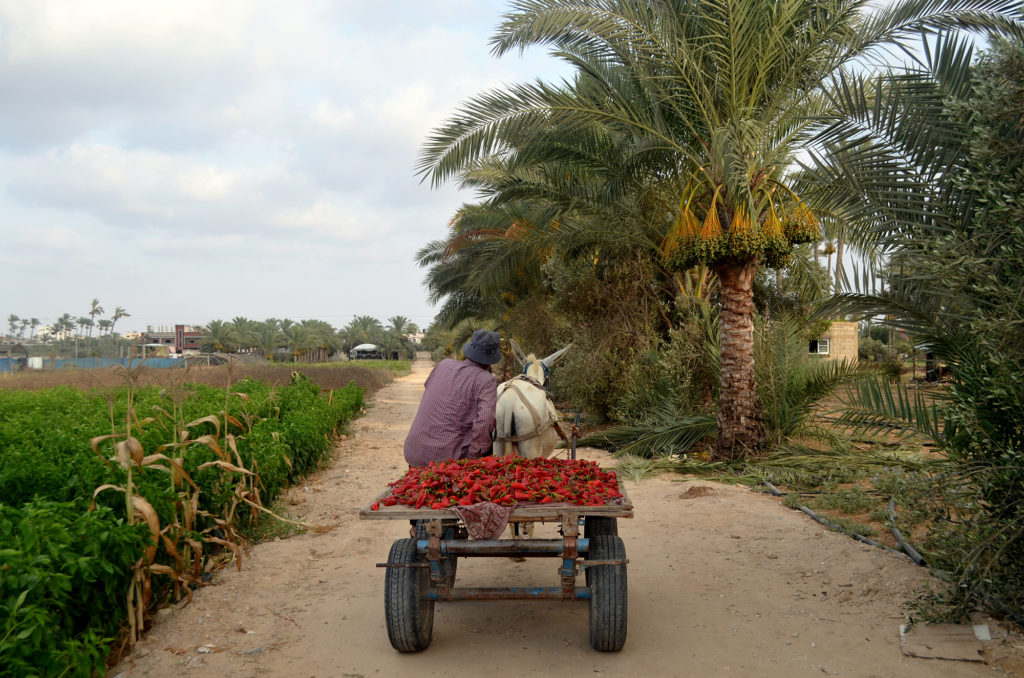

Sadly, no doubt you will know, as a supporter of Anera’s work and a follower of news about Palestine, that Gaza is plagued with many problems. As you go around, you won’t help but see the many manifestations of poverty and economic blockade.
One thing that is not obvious to the naked eye is the state of our precious underground aquifer. The aquifer is a vital source of water here in Gaza. It’s used for personal home consumption, agriculture and industry. But it gets more depleted each year, and the quality of the remaining water deteriorates as sea water moves in where clean water once was. Population growth and urbanization are major contributing factors. And the political situation also cuts off water supplies located outside of the territory and limits infrastructure upgrades that could help make the aquifer more sustainable.
Urbanization reduces groundwater absorption and, increasingly, the rainwater we get during the winter season ends up in the sea, instead of the aquifer.
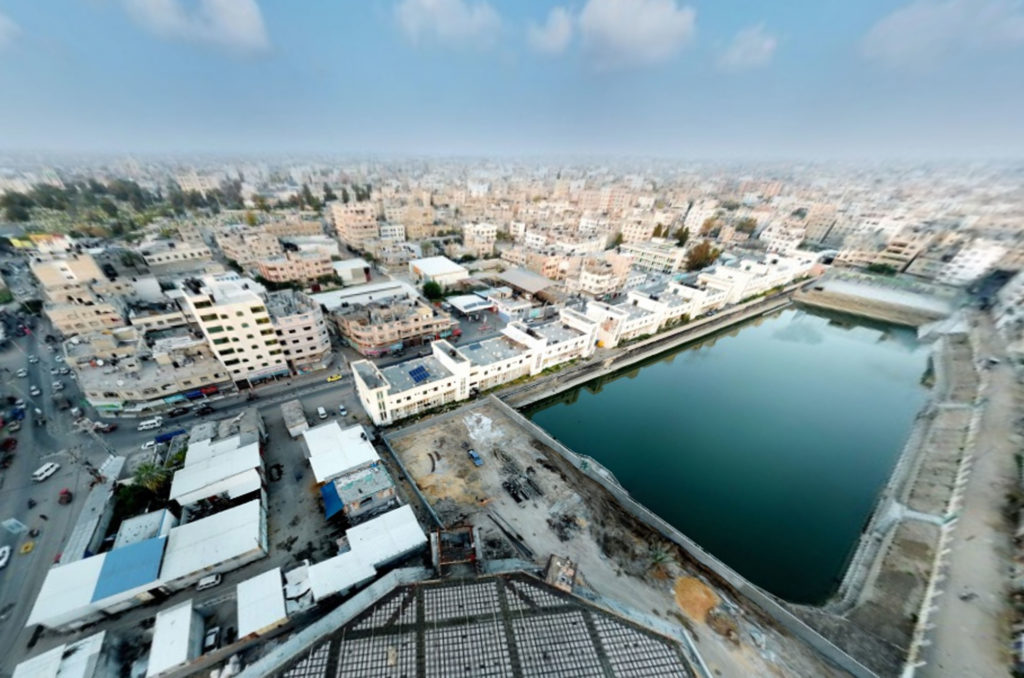

This is the point on our Earth Day tour when I will take you to a special place: the Asqula basin, one of three basins in Gaza City that collect rainwater. These basins were built some 35 years ago and they are in bad shape. According to Gaza municipal reports, only 10% of rainwater now infiltrates into the aquifer because of the poor permeability of the soil layers that are in the basin to clean the water as it goes into the aquifer. The remaining 90% ends up being pumped into the sea in order to prevent the basin from overflowing and flooding the populated area around it. 90%!
I’m proud to say that Anera is now working on the Asqula basin to significantly increase its capacity to deliver water into the aquifer. We will remove dirt and debris that have accumulated and clogged the basin. We will also replace the current top layer of dirt with a new, clean layer of sand. And we will dig 35 new boreholes, with a depth of 82 to 98 feet, to feed the aquifer with filtered rainwater. The new boreholes and clean layer of sand will eliminate waste of rainwater and add 64,986 gallons a day to the aquifer during the rainy season.
Once we’re done, the surrounding area will be free of worry about flooding and the 100,000 residents will be able to better rely on the aquifer for their needs. It also means less fuel will be used pumping rainwater into the sea and wasting it. Most importantly though, it replenishes this important source of water for future generations. Water is life.
And Happy Earth Day everyone. Don’t forget to treasure the resources our planet so kindly offers.
Yalla, come visit Gaza soon!
— Anera WASH Program Coordinator Sami Mater
From the West Bank this Earth Day
As people around the world celebrate Earth Day, families like mine living in the West Bank are celebrating spring. If you have ever been to the West Bank, you know that spring is spectacular. Wildflowers are in bloom under great blue skies stretching above olive groves, and the air buzzes with the sound of bees doing their good work.
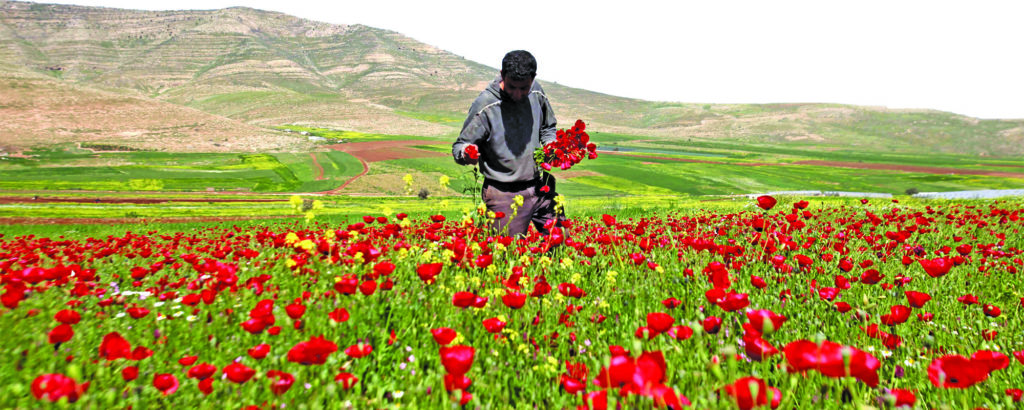

If I could take you on a tour of the West Bank, we could go through village after village where I can point to Anera’s work.
I would show you irrigation networks that reuse treated wastewater in Jenin and Ramallah, rain-harvesting cisterns, farm-to-market roads and terracing, all built with Anera’s help. I would tell you how we’re teaching home gardening and composting to families. I would show you farming cooperatives where we are boosting the production of sun-dried tomatoes and introduce you to farmers who have greenhouses because of your support.
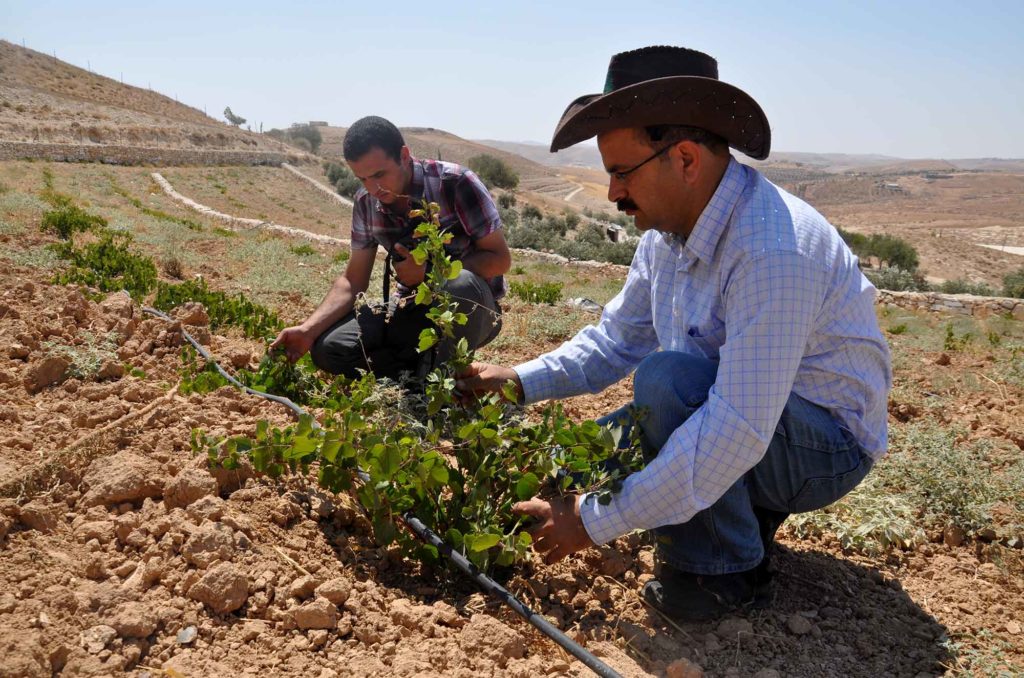

Some of the families we help do not have much more than the ground beneath their feet and the air around them. We are giving them the tools to make the most out of what they do have and help them gain a little more independence while ensuring that resources are managed sustainably, so that, hopefully, future generations can continue to enjoy the fruits of this soil.
Here, we celebrate the earth from season to season, aware of how vital this resource is to our survival.
To everyone who works with us and supports us, thank you,
— Anera Agricultural Projects Manager Naser Qadous
Earth Day 2020
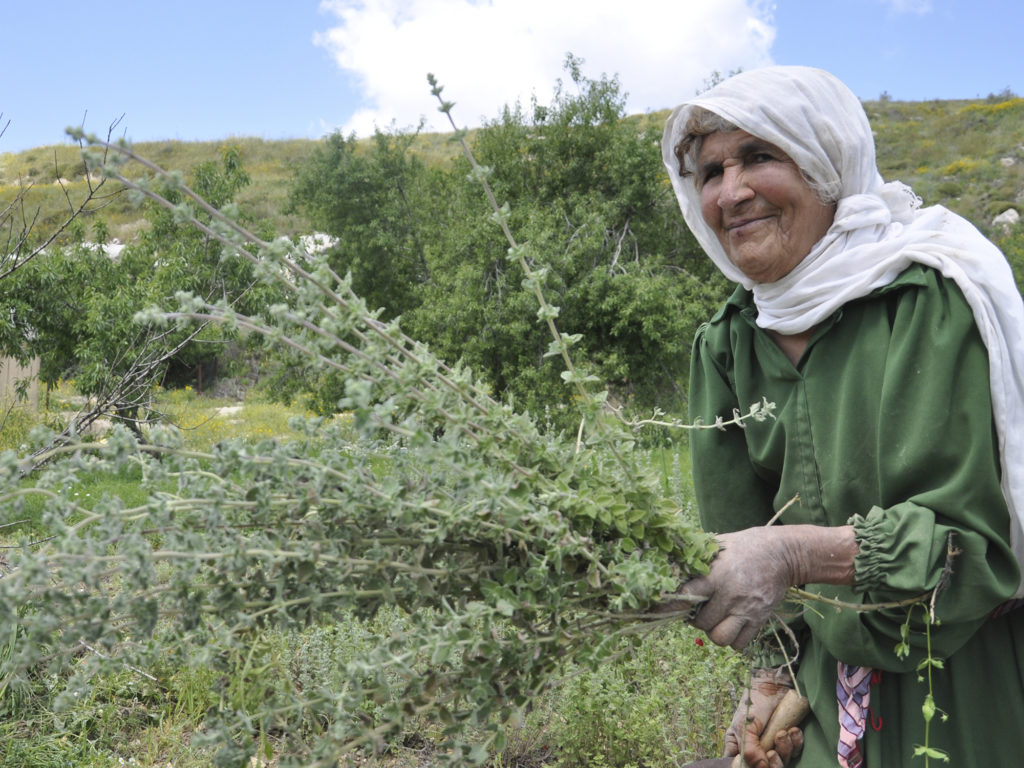

We have on this land that which makes life worth living
The opening lines of famed Palestinian poet Mahmoud Darwish’s poem are an apt reminder that we are all responsible for preserving and protecting the lands we call home. Refugees have a keener appreciation than most for the connection we all feel to our homelands. Palestinian communities all over the world preserve a rootedness in the land of Palestine.
The lands of the Levant have been treasured by cultures for thousands of years of recorded history. For many people around the world, these are sacred lands. The many significant religious sites are only some of the treasures in this region. From the ancient stone terraces and olive trees of Palestine, to the famous cedar forests of Lebanon, these lands are part of our world heritage. Societies here have been relying on this land for sustenance and livelihood for countless generations.
As we take advantage of the natural resources around us, we must ensure that all development is sustainable development. Anera’s #OnThisLand theme for 2020 celebrates the lands we work in, in Palestine, Lebanon, and Jordan, and commits us to ensuring that all of our work is done in ways that treasure and sustain the environment through sustainable farming and energy generation, and water and waste management.
Earth Day 2019
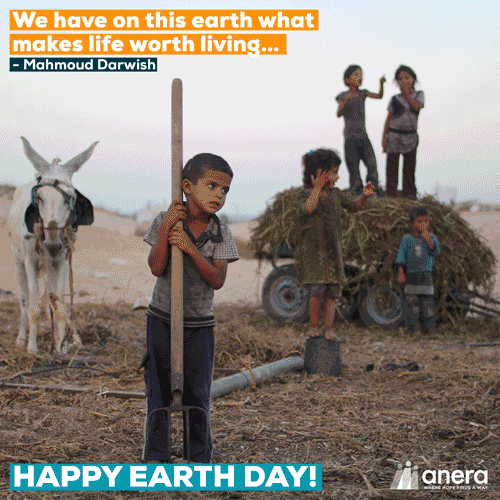

Earth Day is an opportunity to acknowledge the threats facing our planet. In the dry climate of Palestine and parts of Lebanon, water is a scarce resource. The health of both humans and the environment suffer from water shortages, climate change and pollution. Farm fields lay fallow. Trees are few. And families have to save up the little water they can access to survive.
Anera incorporates green practices into many of our projects, from building with recycled materials to installing solar panels on schools and health clinics to irrigating with treated water. Anera’s programs on improving solid waste management and wastewater reuse help preserve the natural landscape and over-burdened resources in Lebanon and Palestine.
Anera intern, Hannah Wright Osborn, wrote last week about how Anera’s programs in Palestine impact the environment and empower people to maximize sustainable use of their natural resources.
Ten years ago, Naser Qadous, Anera’s Agricultural Programs Manager for Palestine, celebrated Earth Day and the onset of spring. He wrote,
“If you have ever been to the West Bank, you know that spring is spectacular. Wildflowers are in bloom under great blue skies stretching above olive groves and the air buzzes with the sound of bees doing their good work. … Here, we celebrate the earth from season to season, aware of how vital this resource is to our survival. “
Naser expressed pride in the work Anera does,
“helping families throughout the West Bank make the most of the generous earth. If I could take you on a tour of the West Bank we could go through village after village where I would point to Anera’s work. … Some of the families we help do not have much more than the ground beneath their feet and the air around them. We are giving them the tools to make the most out of what they do have and help them gain a little more independence.
More recently, in 2017, we spoke with a Palestinian physician and farmer who was part of Anera’s agricultural knowledge sharing program. Using the skills he learned, Dr. Mansour and his sister Ni’ma lovingly tend to their farm in Beit Duqo, in the West Bank.
“When I visit the land,” he says, with yellow roses in hand, “it usually gives me a gift. This is a gift of today. Our feet are planted in this land. The land gives to the one who loves it and works on it.”
Urban areas, like those in Gaza and Lebanon’s refugee camps, grow more polluted as their populations increase. Trash is a big problem in Lebanon, especially in the restricted spaces of refugee camps. Cramped conditions and a dearth of services push residents to dispose of their garbage on streets and beaches, putting people and the environment at risk.
Open dumping and trash burning threaten the health of people and ecosystems. But together we can help solve the problem!
Through strong community engagement, Anera’s multifaceted approach to improving solid waste management ensures investment and participation from residents. Educational materials like those pictured below reinforce recycling and composting practices so household waste is sorted properly at the source.
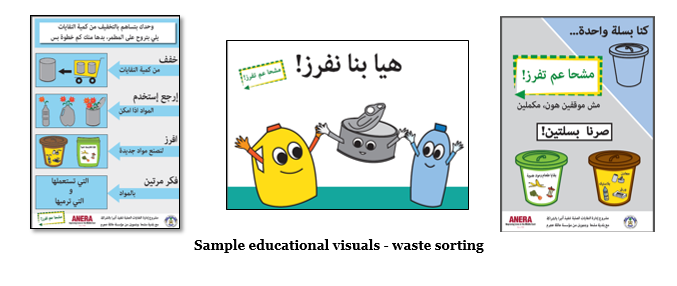

OUR BLOG
Related
In this log, Anera provides updates on unfolding war in Palestine and our response. Please stay tuned here for the latest information. To subscribe for weekly updates via SMS on our response in Gaza, text GAZA to 1-866-549-0055. Questions? See…
>>> Read the full situation report The year 2024 saw the highest levels of displacement and structure demolitions in the West Bank and East Jerusalem since OCHA began tracking these violations in 2009. This increase is mainly due to the…
As we step into a new year, we want to express our heartfelt gratitude for the generosity of supporters like you.

